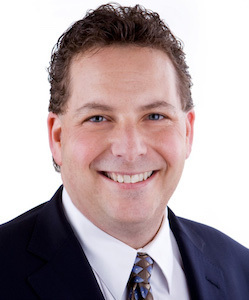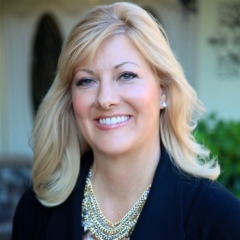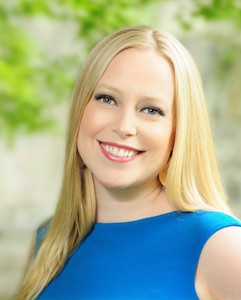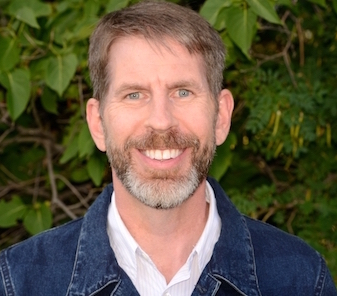Six Best Personal Finance Podcasters on the Internet
We at Instavest scoured the Internet for the best personal finance podcasts and we didn’t stop there. Sure, investing is important, but we were also very interested in why people chose to start a personal finance podcast. While each podcaster had a different story, two common themes emerged:
- First, the podcasters demonstrated a ridiculous passion for personal finance.
- Second, they had a burning desire to help people achieve financial independence.
Without further ado, here are our top five personal finance podcasters:
Andrew Fiebert, Listen Money Matters
Andrew Fiebert is a boss and his story is fascinating. When Andrew started making money after college, he wanted maximum “bang for his buck.” Unfortunately, there weren’t many good places to learn about personal finance at the time.
So, Andrew scratched his own itch and decided to build what was missing. Paul Graham, co-founder of Y Combinator (Disclosure: Y Combinator is an investor in Instavest), says that if you build something that solves a problem for you, there is a high likelihood your friends have the same problem and need a solution. Presto - instant customers! This thought, coupled with being stuck living with his parents in the aftermath of Hurricane Sandy, compelled Andrew to start Listen Money Matters.
Listen Money Matters is a podcast full of relevant technologies, investment topics and a financial toolbox. I know that Andrew is a big believer in index investing, though he likes to dabble in stock picking too. The firm “keeps its lights on” primarily through affiliate relationships and is a fantastic source of cutting edge personal finance ideas and lessons. The discussions around investing are light hearted but incredibly informative. Where else can you find 103 Ways to Make $100 fast? Definitely download Listen Money Matters - you’ll be happy you did!
Andrew Horowitz, The Disciplined Investor
When I spoke to this Andrew, I immediately knew whom I was dealing with. He was matter of fact and quick to the point. I received ten questions about my business model before I had the chance to ask him one. And he got it. Each question was carefully crafted and followed by an insight that only a great investor possesses. I was impressed.
Andrew came to the podcasting world after a career in finance working on insurance and securities. An author of two books, Horowitz was very interested in exploring the Internet space. Before there were ample outlets for social media, Andrew pioneered the way people received their finance knowledge by opening up the conversation. Yes, ladies and gentlemen, Andrew Horowitz is the godfather of personal finance podcasts. The Disciplined Investor podcast was an instant hit.
“iTunes was a big help because there weren’t a lot of shows when I started”, said Andrew. Through his blogging and work on Seeking Alpha, Andrew began building a nice guest list and attracted his users to his podcast. In 2009, Andrew’s content marketing effort earned him an invite to Microsoft’s investment challenge where he outperformed his peers. Brick by brick, Andrew built a devout group of listeners – and not surprisingly, many converted into clients for his advisory practice.
When I asked Andrew for a few nuggets of advice he didn’t hold back. First, he said, make your own rules for how you want to invest and stick to them – don’t get too greedy. People see a stock go up and they say, “well, maybe I’ll hold a bit longer. NO! Stick to the plan.” exclaims Andrew. Second, research the stock you are about to buy - don’t skimp on research - it can save you thousands of dollars. Fundamentals are a vital part of understanding a company, but technical analysis tells the story in real life. Spoken like a true Don.
Linda Jones, Be Wealthy and Smart
Linda Jones started her podcast after 25 years in the traditional financial world. She worked in an institutional setting, handling retail sales and managed accounts. A year ago, she started on her own venture with her podcast that brings an online community together to bring learn and gather unbiased information on the stock market.
I like Linda. She is one of the most genuine thought leaders I have ever met. Linda’s approach to thinking about personal finance is unique. She wants investors to “dream big and envision it” first. See it in front of you and then go get it. This may seem hokey to all of the hardcore investors out there but believing that you can be successful in investing is akin to shooting a basketball - “You miss 100% of the shots you don’t take” – Michael Scott (via Wayne Gretzky).
Linda is “America’s Wealth Mentor.” For a few thousand dollars, Linda coaches her clients to success by offering up investment strategies and the mentality to get there. “Persevering is hard and everyone needs that little push”, Linda says. She is careful to take on all clients noting, “it has to be a good fit – a real connection.” Her client base is comprised mostly of single women and couples – many of whom are working with financial advisors already. “I give them something that they don’t get from anywhere else.” Linda tells me, “they really connect with what I’m saying and that’s why we are such a good team.”
Linda’s high touch, concierge service has been incredibly successful thus far. She was featured on Fox and other media outlets to discuss building a luxury brand and empowering women to wealth.
“Linda,” I said, “if you had to give our readers one piece of advice what would that be?” Linda laughed. She took a deep a breath and said “Think Rich!” Already ahead of you Linda, already ahead of you.
Shannon McLay, Financially Blonde
Shannon’s story began with her working on Wall Street. One night, while she was burning the midnight oil, Shannon realized that her life was headed in the wrong direction. “I didn’t want [this life]”, she said, “I wanted more for myself and I wanted a way to help others.” So Shannon switched over to the world of financial advisory where she discovered that people just wanted to push product and only a handful of advisors genuinely wanted . Strong words against the industry, but Shannon speaks the truth.
With her pink calculator and blonde hair bouncing up and down the halls of Bank of America Merrill Lynch, Shannon quickly became known as the Elle Woods of her office. It was here that Shannon helped a memorable Generation XYZ client - a woman who was neck-deep in student debt. When Shannon met with this woman, she was distraught. After a series of sessions the woman felt like things were under control. And then the woman asked Shannon “You know you’re saving my life, right?” “This was a turning point for me” said Shannon. “I realized that helping people was my calling regardless of how much in assets that person brought to the table.”
Through her podcast, Martinis and Your Money, Shannon guides her listeners through the world of financial planning in a fun, hip way. She helps her listeners invest their first dollar with the baseline principle of making sure they understand their investments in light of their goals. From there Shannon says people need to have at least six months of savings stashed away for a rainy day. Being a Boglehead, Shannon further advocates that the best way to optimize investing is through an index fund or ETF, “diversification is key.” Elle Woods wouldn’t have it any other way.
Joe Saul-Sehy, Stacking Benjamins
Joe is a lot of things but he definitely isn’t average. A financial advisor and renown podcaster that spent 15 years speaking on WXYZ (Channel 7 for all of you Michiganders) on financial related topics, Joe is also an entrepreneur, teacher and probably a few other things that I don’t know about. Joe sold his early business to be a teacher. Teaching was great, but at that time Joe was also writing on the side. That side hustle turned into Joe’s podcast – Stacking Benjamins – a Top 15 Podcast according to US News and World Reports.
Joe’s podcast topics tend to come from the headlines. During Halloween week, for example, Joe and his team discussed the "Top 5 Scariest Investing Stories”. I told him that I knew a guy who lost $800,000 in a single options trade. Joe laughed and said “Yeah, that would definitely qualify for our Top 5!” We’ve all been burned in the market – that’s why financial education is so important. “But…” Joe says, “If you’re going to have a financial advisor, hire someone who will be able to teach you discipline.” I pressed for more. “What else?” I asked. Joe said that “thinking big and strategic when considering your financial goals” is critically important. Understanding where you come from and where you want to go is the blueprint for long term investing success.
To cap our conversation, I asked Joe to share a few more nuggets of advice with our readers. He said that the word “emotion” should never play a role in investing. One way to honor Joe’s advice is to do research. With a few clicks of your mouse you can find pricing and company information on Google Finance. “There’s no excuse not to do your own research” said Joe. “Investing is like preparing for a test. If you prepare, generally there are no surprises. Knowledge is power”, Joe scoffed “I got that from Gordon Gecko.” Yes, Joe – greed can be good.
David Stein, Money For the Rest of Us
David is the producer and host of Money For the Rest of Us, a weekly personal finance podcast ranked in the Top 10 on iTunes for Investing and Top 25 for Business. He was previously Chief Investment and Chief Fund Strategist at Fund Evaluation Group, LLC, a firm with over $33 billion of assets under management.
Despite the many twists and turns of investing, David has always made time to share his investment ideas and philosophy with others. He started sharing his research in a local newspaper column and has since expanded to a weekly podcast based on investing, the economy and a twinge of philosophy. Ah, philosophy - that’s where things get interesting. In a meta-sense, David enjoys chatting about how things are tied together globally. For example, on a recent episode, he connected the dots between Chinese debt and shirts at Wal-Mart. The goal was to teach how stocks and the economy work together and David did this flawlessly. Such education, David believes, helps investors think outside the box and most importantly, make sound investment decisions.
Before I let David go, I asked him to share a few parting thoughts. First, great investors know what they are buying before they pull the trigger. We should all aspire to be great investors. What does the company do? And how does the company make money? These questions sound intuitive, but knowing the answers to these questions is the difference between investing and gambling. Second, when people e-mail you, e-mail them back! You’d be surprised how far that gets you in life. Wise words from a wise man.
Haven’t heard of Instavest? We enable investors to find the world’s best investments. Sign up today to access high quality research and partner with great investors.
Request access today and get $50 as a bonus!






